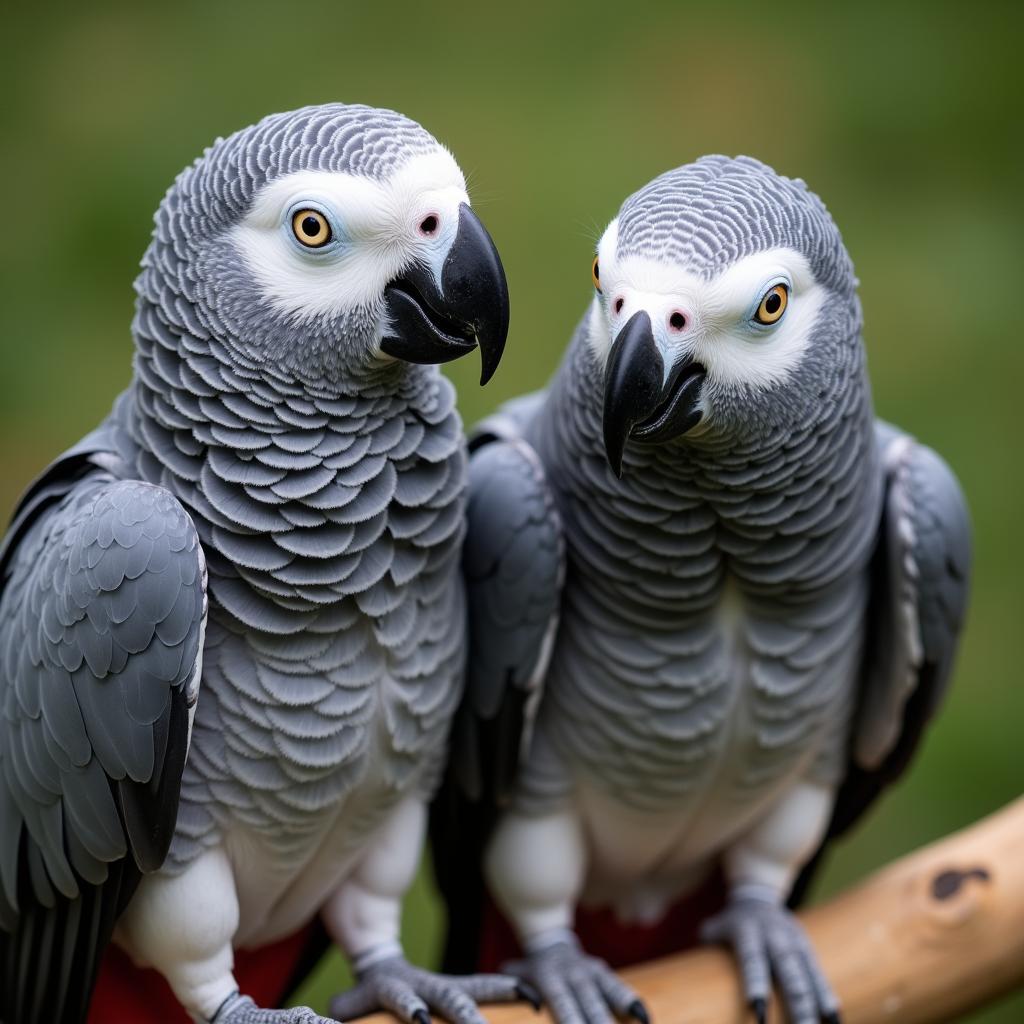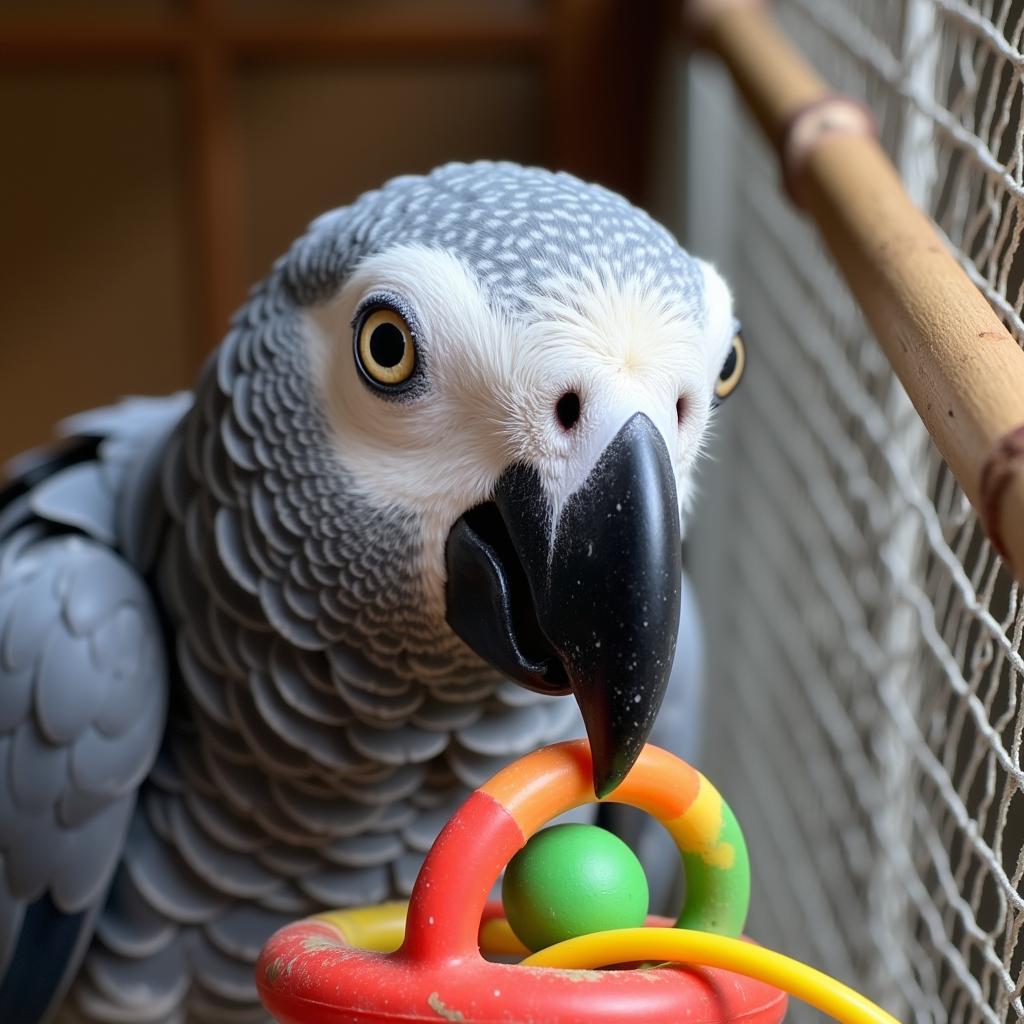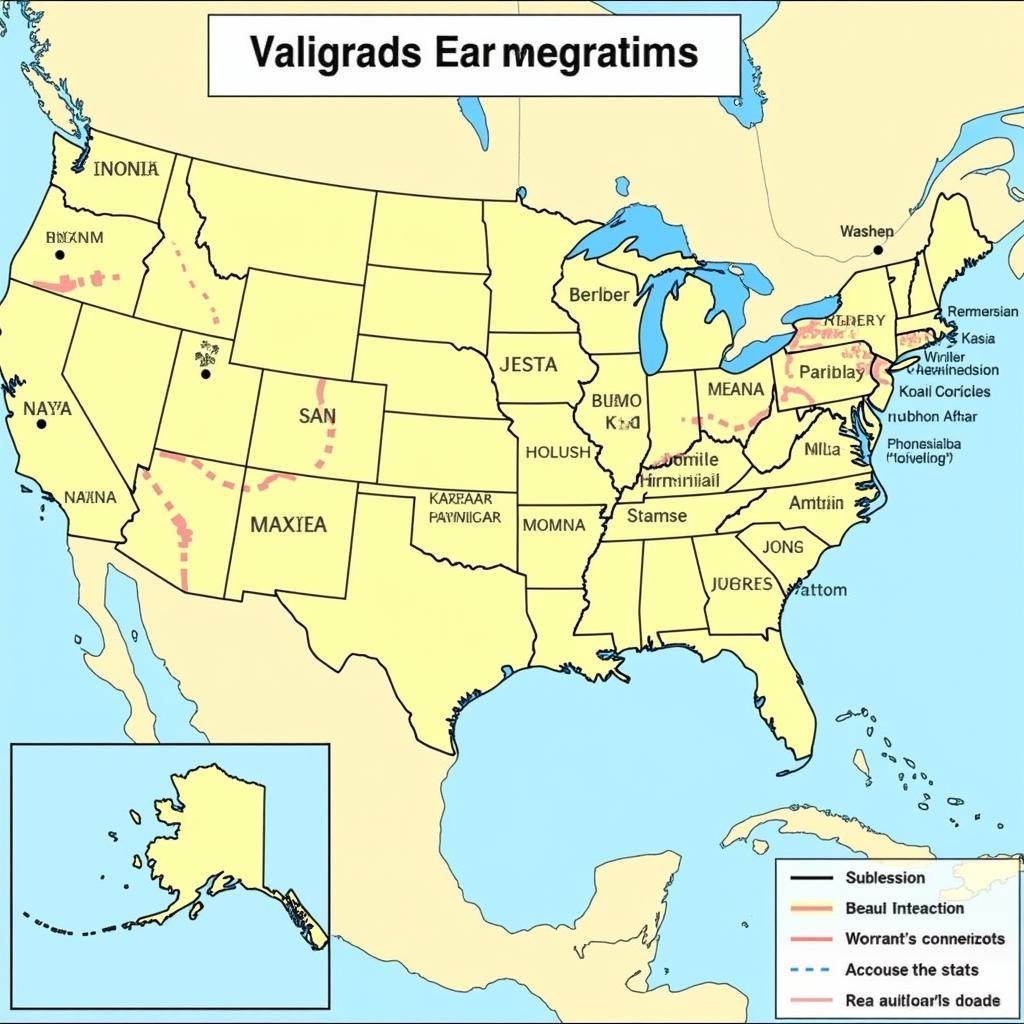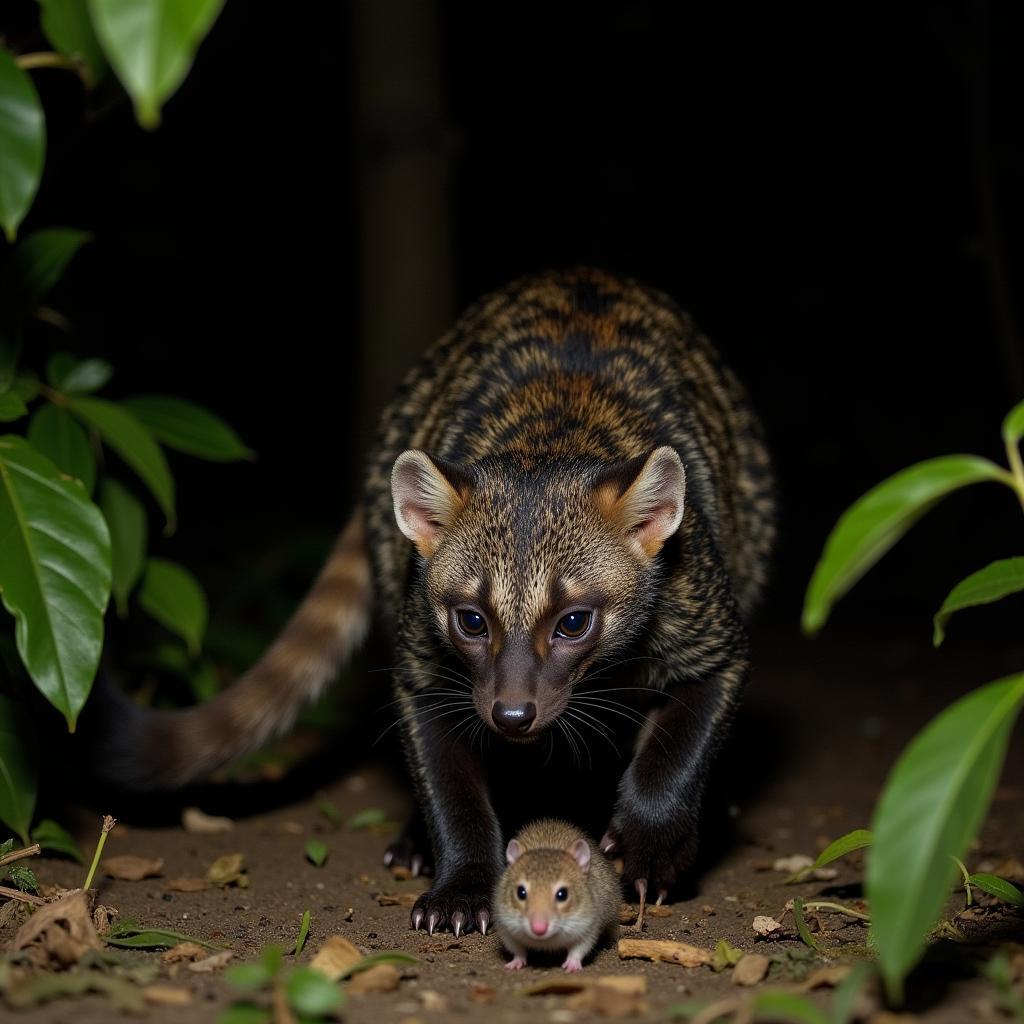African Grey Parrot Pairs in Cage: A Guide to Keeping These Intelligent Birds
African grey parrot pairs are a sight to behold, their soft grey feathers accented by striking red tails. These captivating creatures are more than just beautiful faces; they possess remarkable intelligence and a capacity for deep bonding. Keeping a pair of African greys in a cage requires careful consideration and a commitment to providing a stimulating and nurturing environment that caters to their complex needs.
Understanding African Grey Parrots
Native to the rainforests of Central and West Africa, African greys are highly social animals that thrive in flocks in the wild. Known for their exceptional intelligence, they’re capable of mimicking human speech and understanding complex concepts. When considering African grey parrot pairs in a cage, remember that these birds need ample space, mental stimulation, and social interaction to thrive.
 Two African Grey Parrots perched on a branch
Two African Grey Parrots perched on a branch
Choosing the Right Cage for Your African Grey Parrot Pair
The cage is the foundation of your parrots’ world, and selecting the right one is paramount. A cramped cage can lead to stress, aggression, and even physical health problems. Look for a cage that’s spacious enough for both birds to fully extend their wings and move around freely without their feathers touching the sides.
Here’s what to consider when choosing a cage for your African grey parrot pairs:
- Size: The cage should be at least 2 feet wide by 3 feet deep by 4 feet tall. Larger is always better.
- Bar Spacing: Bar spacing should be no more than 3/4 inch to prevent escape or injury.
- Material: Choose a cage made from a sturdy, non-toxic material like stainless steel or powder-coated wrought iron.
- Features: Look for a cage with multiple perches of varying thicknesses, food and water bowls, and a secure door for easy access.
Creating a Stimulating Environment
African greys are highly intelligent creatures that need plenty of mental stimulation to prevent boredom. A bored parrot can become destructive, withdrawn, or even develop behavioral issues.
 African Grey Parrot engaging with a colorful toy inside its cage
African Grey Parrot engaging with a colorful toy inside its cage
Here are some ways to create a stimulating environment for your African grey parrot pairs:
- Provide a variety of toys: Rotate toys regularly to keep things interesting. Toys that challenge their problem-solving skills, like foraging toys, are especially beneficial.
- Offer opportunities for climbing and exploration: Include ladders, swings, and ropes in their cage to encourage natural movements.
- Interactive Playtime: Dedicate time each day to interact with your parrots outside of their cage. This could involve training, playing games, or simply talking and cuddling.
Feeding Your African Grey Parrot Pair
A healthy diet is essential for your parrots’ physical and mental well-being. A varied diet rich in fresh fruits, vegetables, and high-quality parrot pellets will ensure they receive all the necessary nutrients.
Here’s a breakdown of their dietary needs:
- Pellets: High-quality parrot pellets should make up about 60-70% of their diet.
- Fruits and Vegetables: Offer a variety of fresh fruits and vegetables daily, making up about 20-30% of their diet.
- Healthy Treats: Nuts, seeds, and cooked grains can be offered in moderation as treats.
Avoid feeding your African greys avocado, chocolate, caffeine, alcohol, or salty foods, as these can be toxic to birds.
Maintaining a Healthy Environment
A clean and hygienic environment is crucial for the health of your African grey parrot pairs. Regular cleaning helps prevent the spread of bacteria and parasites that can cause illness.
Here are some essential hygiene practices:
- Daily Cleaning: Remove uneaten fresh food daily and wash food and water bowls with hot, soapy water.
- Deep Cleaning: Thoroughly clean and disinfect the entire cage, including perches and toys, at least once a week.
- Fresh Water: Provide fresh, clean water daily.
Bonding with Your African Grey Parrot Pair
Building a strong bond with your African grey parrot pairs takes time, patience, and understanding. These intelligent birds thrive on interaction and affection, so be prepared to dedicate time each day to building a relationship with them.
Here are some tips for bonding with your parrots:
- Start Slowly: Let them get used to your presence before attempting to handle them.
- Positive Reinforcement: Reward desired behaviors with praise, treats, or head scratches.
- Talk to Them: Talk to your parrots regularly, even if they don’t mimic you right away.
- Be Patient: Building trust takes time.
Conclusion
Providing a loving and enriching environment for your African grey parrot pairs is a rewarding experience. By understanding their needs and following these guidelines, you can help your parrots thrive and enjoy a long, happy life together. Their intelligence, beauty, and capacity for affection make them truly exceptional companions. If you’re considering welcoming these intelligent creatures into your home, remember that responsible ownership requires commitment and a dedication to meeting their unique needs.
FAQs about African Grey Parrot Pairs in a Cage:
Q: Can two male or two female African greys live together?
A: Yes, same-sex pairs can live together harmoniously, but it’s crucial to introduce them properly and monitor their behavior for signs of aggression.
Q: Do African grey parrots mate for life?
A: While they form strong pair bonds, they don’t necessarily mate for life. In the wild, they may choose new mates if circumstances change.
Q: How can I tell if my African greys are bonded?
A: Bonded pairs often preen each other’s feathers, share food, and display affectionate behaviors like cuddling and beak nuzzling.
Q: Can African grey parrots live happily in a cage?
A: Yes, they can thrive in a cage if it’s spacious, stimulating, and they receive plenty of interaction and out-of-cage time.
Q: How long do African grey parrots live?
A: With proper care, African grey parrots can live for 50 years or more.
Need help with your African Grey Parrots?
We are here to assist you 24/7! Contact us at:
Phone: +255768904061
Email: kaka.mag@gmail.com
Address: Mbarali DC Mawindi, Kangaga, Tanzania
Learn more about caring for your African Grey Parrots in our other informative articles on African Life!


